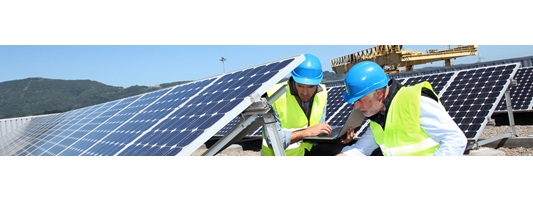
Sustainable Development Goals
In 2015, the 2030 Agenda for Sustainable Development and its 17 Sustainable Development Goals were officially adopted. According to the United Nations, “The Sustainable Development Goals are the blueprint to achieve a better and more sustainable future for all. They address the global challenges we face, including those related to poverty, inequality, climate, environmental degradation, prosperity, and peace and justice. The Goals interconnect and in order to leave no one behind, it is important that we achieve each Goal and target by 2030.”
Sustainable, renewable energy is at the heart of advancing the 2030 Agenda for Sustainable Development, with most direct salience for Sustainable Development Goal (SDG) 7 - seeking to ensure access to affordable, reliable, sustainable and modern energy for all. As illustrated by Tracking SDG 7: The Energy Progress Report 2019, the world is making progress but not yet rapidly enough to meet the 2030 targets.
SDG 7 on Affordable and Clean Energy has especially critical connections to SDG 8 on Decent Work and Economic Growth. Energy is essential to a well-functioning economy, and must be accessible, reliable and affordable. Absence of these conditions may spell job loss and missed job-creation opportunities. Achieving SDG 7 can be considered a precondition for achieving SDG 8, in that almost all jobs that are decent and productive also entail access to energy. But progress towards SDG 8 also holds significance for SDG 7: well-trained and experienced workers holding decent, productive jobs are indispensable for pushing the energy transition forward, manufacturing quality equipment and installing well-functioning plants.
The transition to a more sustainable energy system has important employment ramifications and enhances the socio-economic resilience of communities around the world. Unfettered climate change—in the form of extreme weather, rising global temperatures, changes in rainfall patterns, and spreading disease vectors—will increasingly weaken economic activity and undermine livelihoods by disrupting supply chains, destroying productive assets, displacing people, and affecting the health and productivity of workers. New employment opportunities develop from adopting renewable energy sources, even as workers and communities whose livelihoods rely on fossil-fuel based industries will be displaced and must be offered protection.